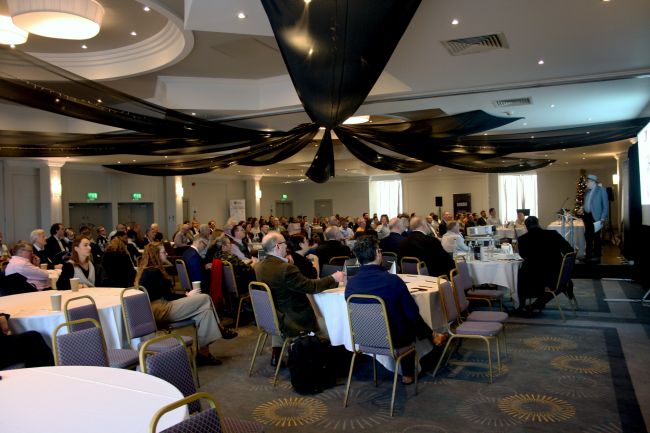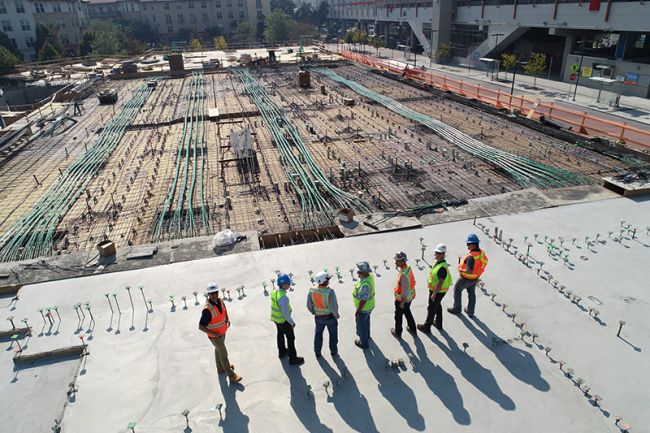Expecting the unexpected: why scenario planning is a key part of any LTP
The pending local transport plan (LTP) guidance from central government is sure to highlight the value of vision-led, evidence-based plans.

Expecting the unexpected: Why scenario planning is a key part of any LTP
The pending local transport plan (LTP) guidance from central government is sure to highlight the value of vision-led, evidence-based plans to create thriving communities with healthier people and cleaner air.
However, as we have all learned in the recent past, the best laid plans can go awry.
In the last half-decade alone, seismic changes at a national and international level have had considerable impacts on the way that our economy and communities operate. The COVID-19 pandemic and its evolving impacts on work and travel patterns, a growing understanding of transport’s contribution to the climate emergency and the invasion of Ukraine and resulting inflation have all seen rapid reassessments of priorities and cost and spend.
The next generation of LTPs need to be adaptable in a turbulent economic, political and geopolitical landscape. As part of a well-designed, vision-led approach to LTPs, adaptive planning tools such as scenario planning and real options appraisal will make your LTP resilient to the shocks the world has to offer.
Why scenario planning
A scenario planning approach to strategy development enables uncertainty to be embraced, by developing a shared view of where we want to be in the future, setting out a pathway for reaching that vision, and then adjusting course as required.
Scenario planning is a complementary part of the transport planning toolkit in helping to explore the external factors, wholly or largely outside of policy makers’ control, which might impact the achievement of a vision. This allows proactive consideration of how you might respond in a range of different possible future scenarios, and to identify interventions which continue to deliver benefits even in different futures.
Scenario planning is also an effective and inclusive engagement tool. Bringing stakeholders into the process of reviewing, refining and applying the scenarios and encouraging them to open their minds to different possible futures helps to cement their support for the overall ambitions of the LTP and make it more robust.
Steer’s framework for responsible scenario planning
Steer’s approach to scenario planning can support your vision-led LTP through integration at key points within the planning process, all with the aim of stress-testing and strengthening different stages of the LTPs design and implementation. Scenario planning is a fantastic opportunity to identify priorities, test the resilience of choices in different scenarios (e.g. a climate event or sudden economic downturn), and, of course, the ongoing monitoring and evaluation of strategy strengths and weaknesses.
Over the last ten years, Steer has built up and evolved its scenario planning framework to support the delivery of these different outputs. Steer’s framework for responsible scenario planning is:
- Built from diverse voices: Our process is stakeholder-led, the variety of perspectives this ensures helps to shape our approach and increase the strength of the planning process
- Value for money: Throughout our scenario planning, we ensure plans are proportionate and will not waste valuable taxpayer money; there are no white elephants in our plans
- Continuously evolving: We make sure we are open to challenges and cumulatively build the lessons we learn in every scenario planning process into our framework to ensure best practice
The method
Steer’s scenario planning framework has been tried and tested on projects for national and local government across the UK and the world. The framework is flexible to meet the myriad of requirements expected from each unique locality but typically contains the four-step process set out below.

This process results in a set of alternative scenarios capturing the breadth of uncertainty in the future and a preferred scenario which capture stakeholders’ future ambitions. These can then be used to support further development of the plan. Notably:
- A co-created transport vision with high levels of buy-in from key stakeholders and the public
- Potential interventions which can be tested or ‘validated’ as part of stress-testing exercises to ensure that they are aligned to the preferred scenario but can also withstand alternative, less desirable ones
- The detail of the preferred scenario can be used to inform continued monitoring of the LTP
- Scenario planning can help to articulate different positive outcomes, which in turn can inform trade-offs for decision makers in terms of different pathways
How scenario planning can help plan development
The vision-led approach supported by scenario planning can be applied for different purposes, budgets, timescales and stakeholder requirements. Where an organisation already has a preferred scenario and vision, scenario planning can help in risk assessment, identifying the external factors which present a barrier to achievement of the vision and determining the transport schemes and policies that could keep us on the right trajectory. Where scenario frameworks already exist, these can be reviewed and updated to ensure that they still capture the range of future uncertainty to best support resilient plan development. Where an organisation is newly formed, scenario planning can be used as a tool to bring together disparate groups of stakeholders together, coalescing around a shared vision for the future.
The multiple, unforeseen crises of the previous decade have shown us that planning for the future can be a difficult task. Scenario planning provides the tools to future-proof the next generation of LTPs by embracing that uncertainty, creating a vision built on consensus and developing robust and resilient plans.
How can Steer help?
Steer is well equipped to help all local authorities with designing an LTP, from scenario planning and innovative technology to implementation and decarbonisation. Our expertise spans multiple regions and sectors, and we are perfectly placed to shape the new generation of LTPs.
- Steer has a host of expertise in interesting and engaging data analysis and a demonstrable track record of using it to support transport plans and strategies at multiple key levels. We also have expertise in-house from people who have worked in the public sector developing and delivering strategies and plans, and who have seen what’s worked and not worked. Our experience can help you develop a tailored and impactful Local Transport Plan.
Steer is offering a free facilitated workshop session tailored to help any local transport authority to assess what’s needed for your LTP, regardless of what stage you’re at in the process. To talk through your local transport plan requirements, do not hesitate to get in touch with Nicola Kane (North), Simon Statham (Midlands) or Steven Bishop (South).























